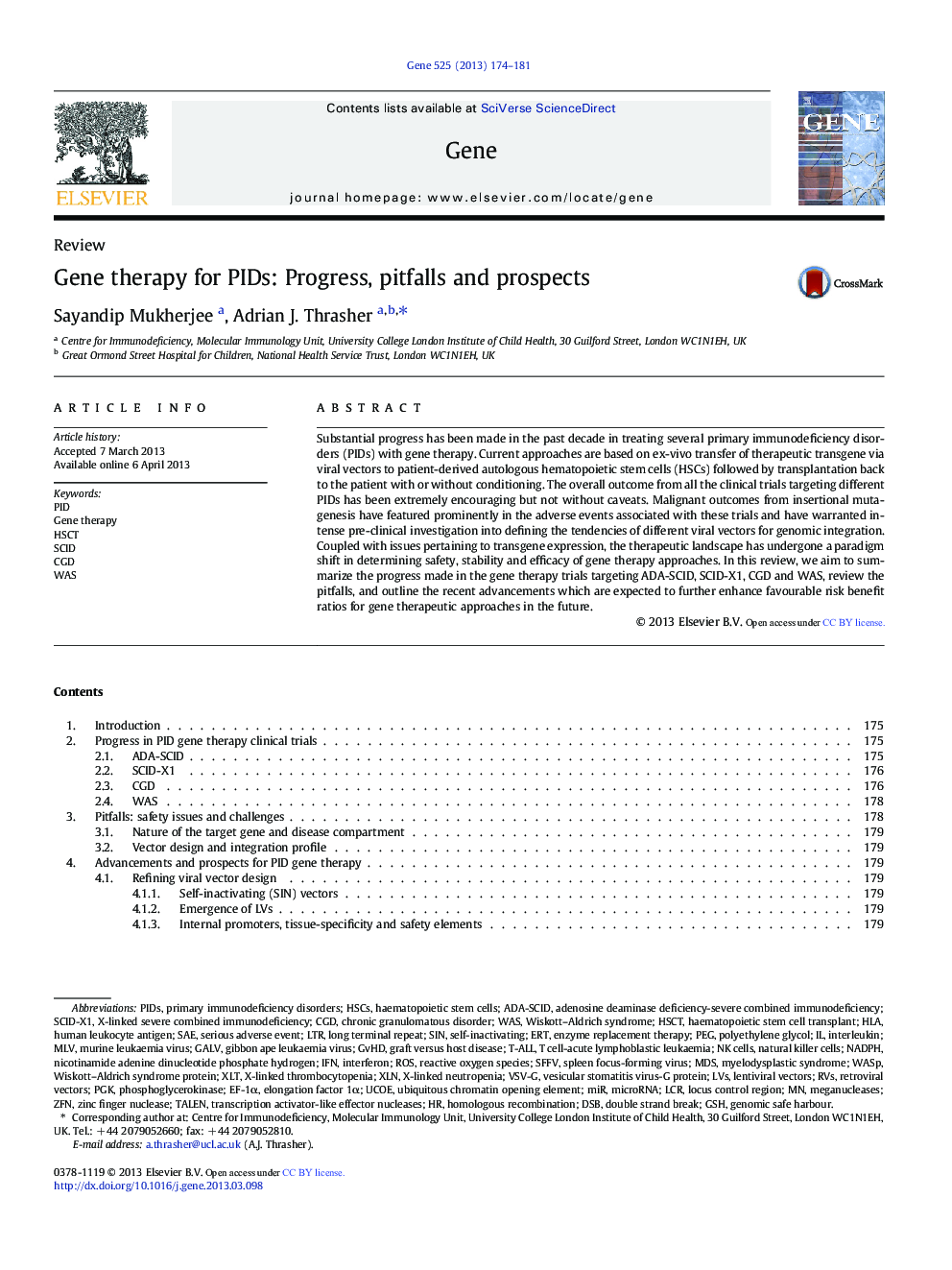| Article ID | Journal | Published Year | Pages | File Type |
|---|---|---|---|---|
| 5906200 | Gene | 2013 | 8 Pages |
â¢PID gene therapy is a promising alternative to HSCT in absence of suitable donors.â¢Gene therapy clinical trials targeting various PIDs have shown significant efficacy.â¢Retroviral and lentiviral vectors are presently the mainstay of gene delivery.â¢Insertional mutagenesis and vector silencing constitute the main concerns.â¢Novel gene delivery approaches are currently being investigated and validated.
Substantial progress has been made in the past decade in treating several primary immunodeficiency disorders (PIDs) with gene therapy. Current approaches are based on ex-vivo transfer of therapeutic transgene via viral vectors to patient-derived autologous hematopoietic stem cells (HSCs) followed by transplantation back to the patient with or without conditioning. The overall outcome from all the clinical trials targeting different PIDs has been extremely encouraging but not without caveats. Malignant outcomes from insertional mutagenesis have featured prominently in the adverse events associated with these trials and have warranted intense pre-clinical investigation into defining the tendencies of different viral vectors for genomic integration. Coupled with issues pertaining to transgene expression, the therapeutic landscape has undergone a paradigm shift in determining safety, stability and efficacy of gene therapy approaches. In this review, we aim to summarize the progress made in the gene therapy trials targeting ADA-SCID, SCID-X1, CGD and WAS, review the pitfalls, and outline the recent advancements which are expected to further enhance favourable risk benefit ratios for gene therapeutic approaches in the future.
